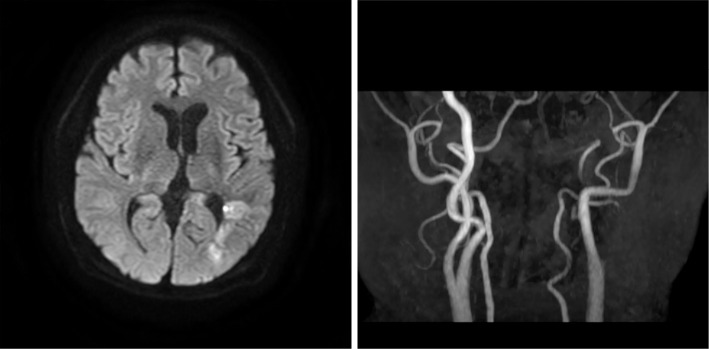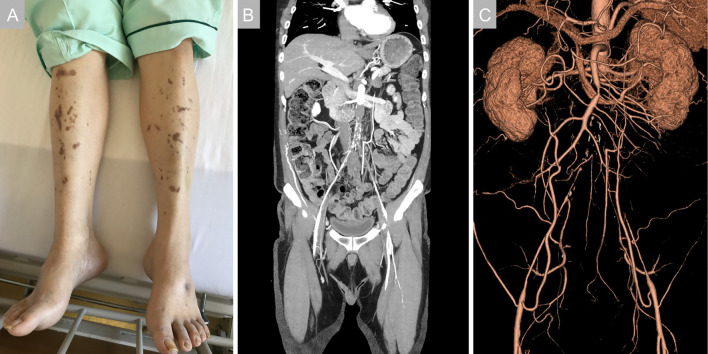A 43-year-old man was admitted with aphasia. He was a heavy smoker and diabetes. He had previously received medication for left internal carotid artery stenosis three years earlier, which was later discontinued. We detected cerebral infarction of the left temporal lobe and left internal carotid artery occlusion (Picture 1). The patient was therefore treated with clopidogrel, aspirin and rosuvastatin calcium. He had ulcers on his legs (Picture 2A), impotence and intermittent claudication, suggesting Leriche syndrome (1). The dorsal artery pulse was bilaterally weak, and computed tomography angiography revealed occlusion of the abdominal aorta from the distal side of the renal arteries to the bifurcation of the iliac arteries and below (Picture 2B and C). The coagulation function was normal, including the activity of proteins C, P and anticardiolipin antibody. Inflammatory reactions and autoantibodies associated with vasculitis were negative. A biopsy of the skin ulcer demonstrated ischemic changes. Ischemic ulcers can reflect limb perfusion (2). The concurrence of cerebral infarction and Leriche syndrome is rare; however, both share common risk factors of diabetes mellitus, hypertension, hyperlipidemia and smoking and can coexist. Performing stent retriever thrombectomy via the femoral artery carries a risk of collapse of aortic thrombus. The dorsal artery pulse and limb ulcer should be checked in such cases.
Picture 1.
Picture 2.
The authors state that they have no Conflict of Interest (COI).
References
- 1.Leriche R, Morel A. The syndrome of thrombotic obliteration of the aortic bifurcation. Ann Surg 127: 193-206, 1948. [DOI] [PMC free article] [PubMed] [Google Scholar]
- 2.Norgren L, Hiatt WR, Dormandy JA, Nehler MR, Harris KA, Fowkes FG; TASC II Working Group.. Inter-society consensus for the management of peripheral arterial disease (TASC II). J Vasc Surg 45 (Suppl S): S5-S67, 2007. [DOI] [PubMed] [Google Scholar]




